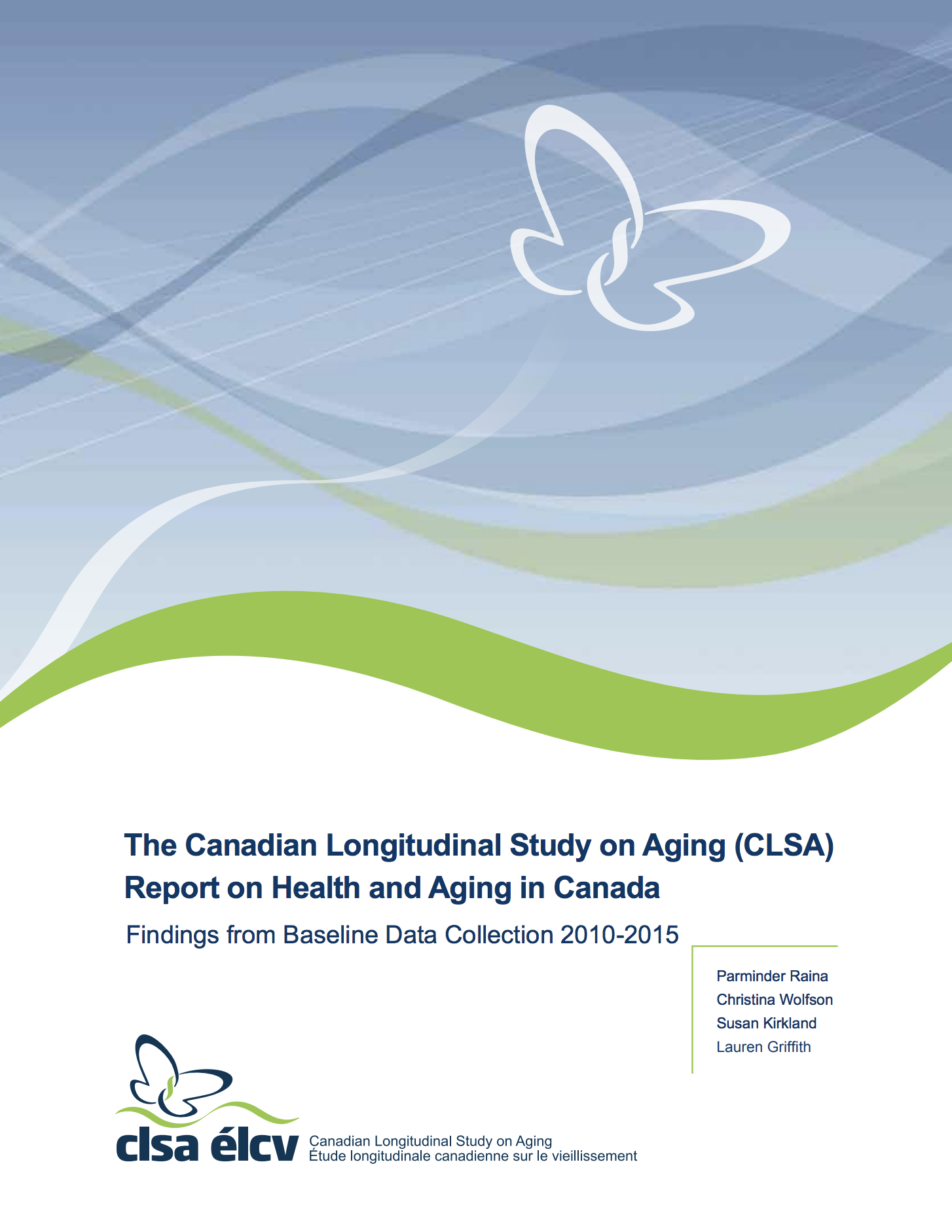The Canadian Longitudinal Study on Aging (CLSA) Report on Health and Aging in Canada
 The Canadian Longitudinal Study on Aging (CLSA) was conceived with the recognition that Canada’s population is getting older, and the vision that we can unveil the determinants of health and wellness in our later years. We reached a key demographic point in 2016 when for the fi rst time the number of Canadians over 65 exceeded the number of those aged 14 and under. In fact, by 2031, one in four Canadians will be 65 or older.
The Canadian Longitudinal Study on Aging (CLSA) was conceived with the recognition that Canada’s population is getting older, and the vision that we can unveil the determinants of health and wellness in our later years. We reached a key demographic point in 2016 when for the fi rst time the number of Canadians over 65 exceeded the number of those aged 14 and under. In fact, by 2031, one in four Canadians will be 65 or older.
As a country, where the average life expectancy is 80 for men and 84 for women, people are living longer. The addition of these extra years of life is a good sign in itself. They demonstrate Canada’s high standard of living, innovative public health and high-quality health care. But we have to make sure that these extra years are worth living: More time to work and contribute wealth and wisdom to society, as well as more time to enjoy with family and friends.
By supporting the CLSA, CIHR aims to ensure that research on the determinants of healthy and active aging will be better known and shared with all Canadians, help to empower them to maintain their health and quality of life throughout the lifespan.
The information being collected at sites across the country from the more than 50,000 Canadians participating in the CLSA is an important national resource. Its value speaks to researchers, health policy makers, public health professionals, and anyone else with an interest in maintaining good health in Canadians. Our goal is that CLSA data will guide the development of policies and programs to support healthy aging for decades to come.
This report is only the beginning of the long road towards better knowledge about the determinants of healthy aging. As a baseline report, it provides a necessary starting point to measure the health trajectory of Canadians. It will eventually help us design a blueprint for a longer, healthier life course.
We congratulate the CLSA researchers, participants, and staff on their tremendous work to date. We are very thankful to the research team and to all the Canadians participating in the CLSA who are playing an important role in advancing knowledge.
May this report be the first instalment in an investment in a healthier future for Canadians.


